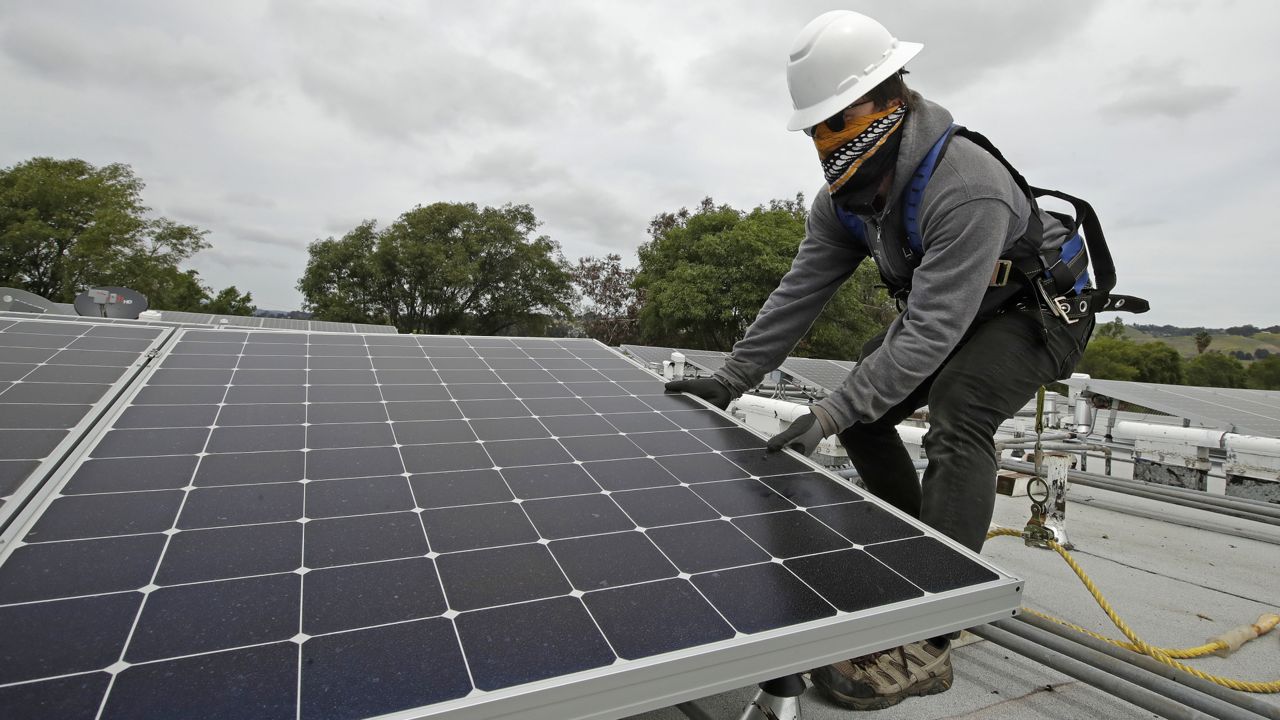The Department of Housing and Urban Development will help fund the renovations of 1,500 homes in low-income and tribal communities as part of their goal to decarbonize half of all housing in the next ten years and reinforce the country’s housing stock against extreme weather events, the Biden administration announced on Thursday.
The $100 million investment will go to small businesses and nonprofits working on low-income housing, including for the installation of rooftop solar panels, wind turbines, reinforced roofing and energy efficient HVAC systems.
The program will address multiple areas of policy concern for the Biden administration, Biden senior clean energy adviser John Podesta said on a press call on Monday: climate and poverty. “in communities who have been left behind and overburdened by pollution for far too long.”
On the call, Department of Energy Deputy Secretary David Turk noted Census Bureau data from 2020 that showed one in five U.S. adults were unable to pay all their utility bills that year.
“Clean energy is affordable energy, and that when you install rooftop solar or you add insulation when you fortify roofing, when you switch to heat pumps and other energy efficient systems, it's lowering bills, which is a top priority for President Biden,” Podesta said. “These announcements tackle the climate crisis through the building sector where more than one-third of our emissions in the United States come from.”
And as climate change contributes to more frequent and severe extreme weather events, the renovations will create more weather-resistant homes and reduce strain on the electrical grid.
The Departments of Treasury and Energy are also opening applications on Thursday for a tax credit for clean energy investments in low-income and tribal communities. Combined with existing tax credit from the Inflation Reduction Act for businesses that meet certain wage and employment requirements, federal officials said on Wednesday that some projects could get as much as half of their costs back in tax credits.
The new credit is expected to generate 1.8 gigawatts of electricity annually — enough to power almost two million homes a year. Communities where half the households have incomes below 200 percent of the poverty line or 80% of the area’s median income will get 40% of that energy output, according to the Treasury Department. Tribal communities and federally-subsidized housing — including for seniors, people with disabilities and other low and moderate income families and individuals — will get around 11% each. The Biden administration has poured tens of millions into tribal communities through various clean energy projects.
“For far too long, low income Americans, tribal communities have been among the last to benefit from clean energy investments,” Turk said. “But under this administration, we're making sure that they're among the first.”
A 2022 Department of Energy report found that 54,000 people lived without electricity on tribal lands across the country. For those with electricity, 56% had energy bills higher than the national average, including 35% having bills twice or more than the national average. Over 30% of tribal communities reported outages at least monthly.
An application for the new tax credit will go live on www.treasury.gov on Thursday at 9 a.m. EST.



